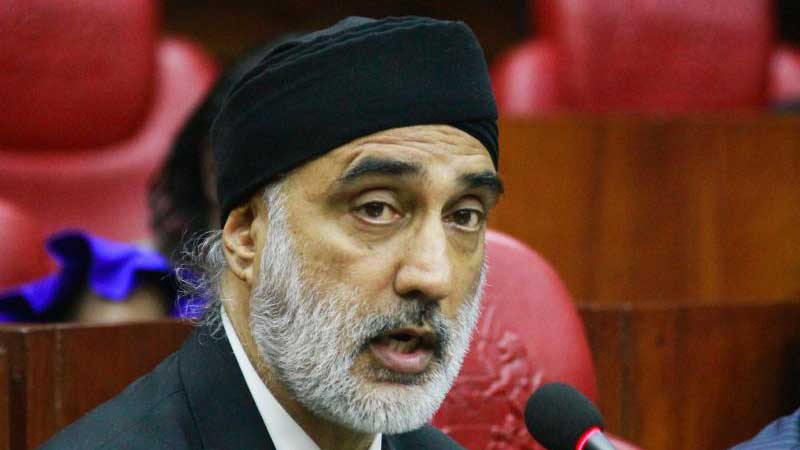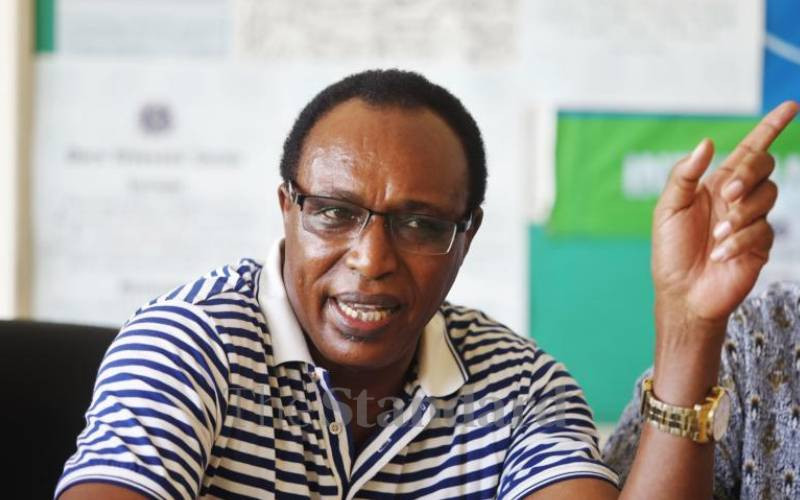By TWV Investigative Team
Sidian Bank’s involvement in the collection of contributions for Kenya’s Social Health Insurance Fund (SHIF) has come under heightened scrutiny, with the recently enacted Conflict of Interest Act raising fresh questions about the bank’s potential misuse of political influence.
To unlock the full article:
Choose one of the options below:
- Ksh 10 – This article only
- Ksh 300 – Monthly subscription
- Ksh 2340 – Yearly subscription (10% off)
The debate was reignited by former Deputy President Rigathi Gachagua, who alleged that President William Ruto is indirectly benefiting from both SHIF and the Housing Levy through Sidian Bank. Gachagua claimed the President had turned government programmes into “business opportunities,” funnelling funds through the lender to his advantage.
Sidian Bank has, however, dismissed such claims. In a statement, the lender stressed that its role is limited to facilitating collections, acting only as a channel through which employers and individuals remit contributions to SHIF accounts. “Sidian Bank does not hold or manage SHA funds,” it said.
The Central Bank of Kenya (CBK) confirmed that Sidian Bank was selected alongside KCB, Co-operative Bank, Equity, Absa, and DTB to facilitate collections, noting that the approvals were based on employer preferences rather than political considerations.
The new Social Health Authority (SHA), created under the Social Health Insurance Act of November 2023 to replace the National Health Insurance Fund (NHIF), began operations on 1 October 2024. Yet its rollout has been fraught with controversy, marked by delayed reimbursements, system challenges, and mounting distrust from healthcare providers.
The Rural Private Hospitals Association of Kenya (RUPHA) recently issued a 14-day strike notice, citing Ksh76 billion in unpaid claims and warning that private hospitals are facing severe financial distress.
The issue is complicated further by the Conflict of Interest Act, signed into law by President Ruto on 30 July 2025 and operational from 19 August. The legislation prohibits state and public officers from holding interests in entities transacting with government agencies. It also requires them to declare their income and assets, including those of spouses and dependents, and to recuse themselves from any decisions where conflicts arise.
Failure to comply is a criminal offence, punishable by fines, dismissal from office, or imprisonment. Sidian Bank’s ownership structure has sharpened the debate. President Ruto is linked to the bank through Pioneer General Insurance Company, which in 2023 acquired a 16.89 per cent stake. Other key shareholders include Centum Investment Company PLC, via Bakki Holdco (27.27%), Wizpro Enterprises Limited (24.95%), and Afram Limited (24.36%).
Critics argue that even if Sidian Bank only acts as a clearinghouse for contributions, its shareholder connections place the institution on “forbidden terrain” under the new conflict-of-interest provisions.
Social media speculation has further clouded the issue, with claims, strongly denied by the bank, that it controls up to 80 per cent of SHIF collections. Media outlets have also sought to clarify that Sidian does not hold SHIF money, but merely remits it directly to SHA.
Nevertheless, the optics remain problematic. With healthcare facilities struggling to stay afloat, the credibility of SHA is on the line. Hospitals and patients continue to bear the brunt of delayed or inadequate reimbursements, despite official assurances that payments are timely.
For Kenya, the Sidian Bank affair is fast becoming a litmus test of the country’s commitment to integrity and accountability. The Ethics and Anti-Corruption Commission (EACC) is empowered to investigate any evidence of undeclared interests or failure by public officers to recuse themselves.
Ultimately, while Sidian Bank insists on its limited role, the convergence of political associations, financial opacity, and a public still reeling from health sector mismanagement has turned the lender into a lightning rod in Kenya’s governance debate.
As the Conflict of Interest Act takes effect, enforcement will determine whether the law can restore public trust or whether the suspicion surrounding SHIF collections will deepen the crisis of confidence in state institutions.
[/full]




